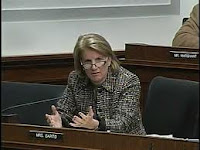ACTION REQUESTED
Approval of the attached Federal Register notice requesting comment on a proposed new rule that (1) establishes standards for determining whether an interchange fee received or charged by an issuer with respect to a debit card transaction is reasonable and proportional to the issuer’s cost incurred with respect to the transaction and (2) prohibits issuers and networks from restricting the number of networks over which a debit card transaction may be routed or inhibiting the ability of a merchant to direct the routing of a debit card transaction.
BACKGROUND
New section 920 of the Electronic Fund Transfer Act (“EFTA Section 920”), added by Section 1075 of the Dodd-Frank Wall Street Reform and Consumer Protection Act, directs the Board to issue rules relating to debit card interchange fees, network exclusivity, and transaction routing. EFTA Section 920 was enacted to address merchant concerns regarding the level of interchange fees and network routing rules and exclusivity arrangements. The provisions of EFTA Section 920 are discussed in more detail below.
Payment card networks set a variety of fees paid by different parties in the network in order to process transactions through the card network. Interchange fees are set by payment card networks and are paid by merchant acquirers to card issuers. Merchant acquirers include the interchange fees in the merchant discount fees they charge to merchants. Although current interchange fees are not tied directly to issuer costs, issuers assert that interchange fees are used to cover the costs associated with their debit card programs, including fraud-prevention measures. In recent years, merchants have objected to what they believe are excessively high interchange fees. Payment card networks also charge other fees, including switch fees, to both issuers and merchant acquirers, which allow the networks to cover their costs and earn a return on investment.
Payment card networks also establish rules that issuers, acquirers, and merchants must follow in order to participate in the network. Among other things, network rules generally permit issuers or networks to determine how a particular transaction will be routed. In addition, the two major networks that carry signature debit card transactions (Visa and MasterCard) have established or purchased affiliated PIN-debit networks (Interlink and Maestro, respectively). Financial incentives from the two major networks have led some issuers to issue debit cards that can carry transactions over only one of these networks or its affiliates. Merchants have raised concerns about the competitive consequences of various network rules and exclusivity arrangements.
In order to inform this proposed rulemaking, staff distributed surveys to debit card issuers, payment card networks, and merchant acquirers in September. The surveys requested information about issuers’ costs of processing transactions, current and historical interchange fees, other network fees, the incidence of and loss from fraud, fraud-prevention activities and their associated costs, and network exclusivity arrangements and transaction routing restrictions. Staff analyzed the survey responses, and key results are discussed throughout this memorandum. In addition, staff has held a number of meetings with payment card networks, issuers, merchant acquirers/processors, merchants, and consumer representatives to better understand the debit card industry and has reviewed written submissions provided by interested parties.
PROPOSAL
The proposal has two main components: (1) rules establishing the interchange fee standards and a request for comment on standards for fraud-prevention adjustments to those fees and (2) rules prohibiting network exclusivity and routing restrictions.
(Click here for the complete printable.pdf)








